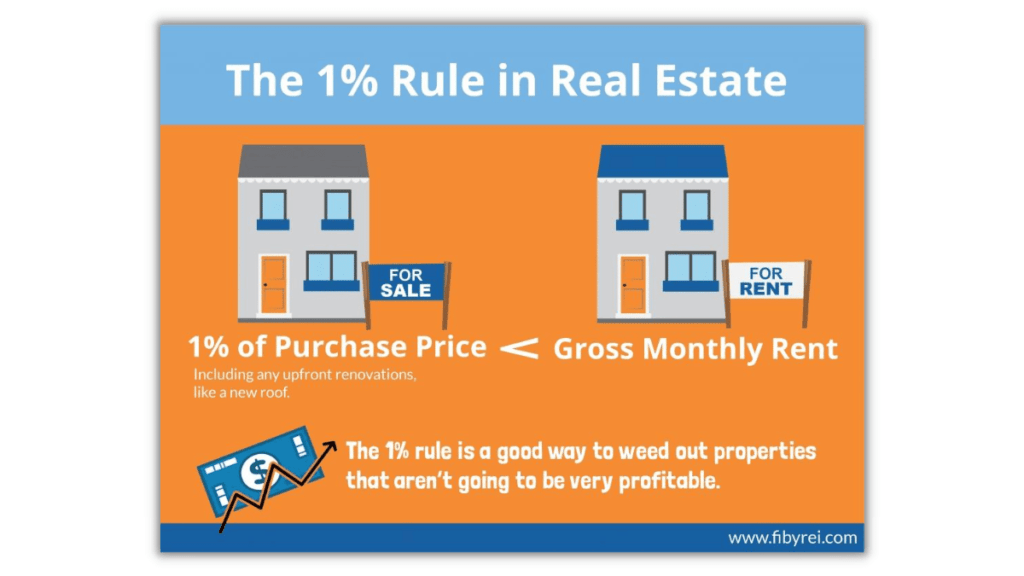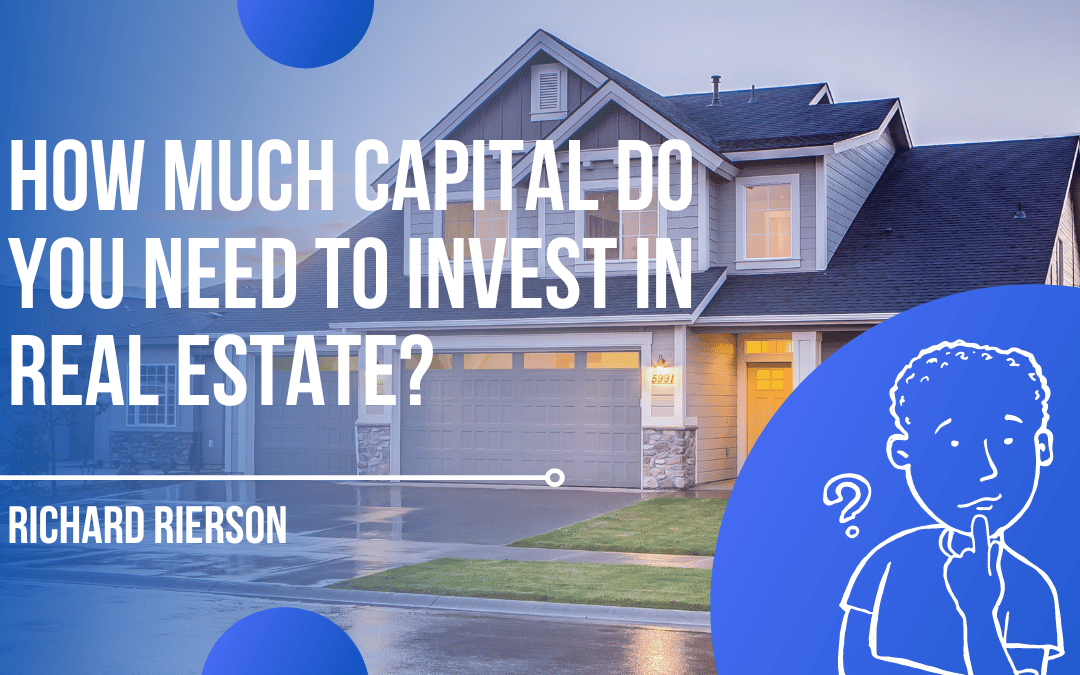Want to start generating income and building wealth? Investing in real estate is a great way to start. Investors need to understand how much money they will need to get started.
Let’s review what you need to consider when deciding how much money you need to start buying real estate.
Calculate Your Initial Investment.
It is important to determine how much capital you will need before you invest in real estate. This includes any down payments, closing costs, repairs, and other fees that may need you to buy a property. When planning your budget, remember to think about how much money you might have to pay in interest. And also how much money you could make by renting out your property. Investment property mortgage rates are 50 to 87.5 basis points higher than rates for a primary home.
The 1% Rule
The 1% rule in real estate is a way to figure out if a property is a good investment. It looks at how much money the property will make compared to how much it costs to buy. To pass the 1% rule, the rent you get each month from the property needs to be the same as or more than 1% of what you paid to buy it.

Secure Financing Options for the Property.
Before you can purchase a house, you need to determine how much money is necessary. After that, you can search for ways to borrow it; one option may be taking out a loan from a bank or credit union.
It is wise to explore different financing options. The amount of interest and fees charged by different lenders may differ.
Banks require money to provide loans, and the interest rates they charge can fluctuate. If the rate is high, borrowing money becomes more costly; on the other hand, if it’s low, repayment becomes simpler. Each bank has different ways of working and likes different types of customers. Be sure to know exactly how much you need to pay back after taking a loan.
Also, check if there are any special deals available. Some deals may let you pay less at the beginning, or you may qualify for help from the government.
Research Government Loans Available
There are various government programs available that can assist those looking to purchase a house or invest in property.
1. Homeownership Voucher Program. This program assists low-income families in purchasing a home, including investment properties.
2. Rural Housing Service Direct Loan Program. This initiative offers low-interest loans to families living in rural areas who wish to purchase or improve their homes, including investment properties.
3. The Good Neighbor Next Door Program is also available to police officers, firefighters, emergency medical technicians, and teachers who wish to purchase homes in areas in need of improvement or investment properties.
4. The Neighborhood Stabilization Program is another option to assist in purchasing and fixing up abandoned homes, even if they’re intended for rental use.
5. The Community Development Block Grant Program can also assist cities and counties in purchasing and renovating old properties, including investment-grade ones.
Certain states and cities offer tax credits to individuals who purchase and renovate investment properties in certain areas.
It is essential to be aware that each program has its own rules and requirements. Do your due diligence and speak to someone knowledgeable about each one in order to decide if it’s the right choice for you.
Factor in Closing Costs and Taxes.
Don’t forget to factor in closing costs and taxes to your needed upfront capital, as these can add up.
When you buy a house, you have to pay closing costs. These costs are for things like getting a loan, checking how much the house is worth, and making sure no one else owns it. Other people will charge you for these things.
- Loan-related costs
- Title-related costs
- Escrow-related costs
- Third-party fees
You should also think about how much you’ll have to pay in taxes for the house. It’s important to have enough money saved up for this too.
Set Aside Funds for Maintenance and Repairs.
Real estate investments involve long-term financial planning and budgeting.
Every month, you need to save some money to pay for building and taking care of your properties. You might need to pay for other things when you have a home, like getting insurance or taking care of the lawn. You might also have to clean the house, fix things that break, or paint the walls. Sometimes you might need to buy new appliances too.
Make sure you have enough money saved before buying property. This will help you cover unexpected expenses every month.
Prepare to Handle Vacancy Losses and Other Expenses.
When you buy a building, you may not always have someone renting it. This is a vacancy loss. To prepare for this, keep some money from the rent each month for fixing things later. There might also be other costs like lawyer fees, taxes, and interest on loans.
Remember to plan for those too! Be sure to have enough capital available to cover these extra expenses when they arise.
How to buy rental properties with no money down
Buying a rental property with no money is not an easy task, but there are some strategies you can use to make it happen. Here are some possible ways to do so:
- House Hacking: This strategy involves buying a multi-unit property (such as a duplex or triplex) and living in one of the units while renting out the other units to cover your mortgage payment. This way, you can finance the property with little to no money down and start generating rental income right away.
- Seller Financing: Some sellers may be willing to finance the sale of their property themselves, which means you can make a down payment and then pay off the rest of the purchase price over time. This strategy can work well if the seller is motivated to sell and you negotiate favorable terms.
- Joint Venture: You can partner up with someone who has the funds to purchase the property and then offer your skills, such as property management or finding tenants. This way, you can split the profits with your partner and build your real estate portfolio.
- Lease Options: This strategy involves finding a motivated seller who is willing to give you the option to purchase their property at a later date, while you rent the property in the meantime. This way, you can generate rental income while building up your down payment to eventually buy the property.
- Government Programs: Certain government programs, such as the Department of Housing and Urban Development (HUD) and the USDA Rural Development program, offer financing options for first-time homebuyers or low-income families that need little to no down payment.
It’s essential to note that buying a rental property with no money down may not always be the best decision and may come with certain risks. Do your due diligence, crunch the numbers, and consult with a real estate expert before making any investment decisions.

